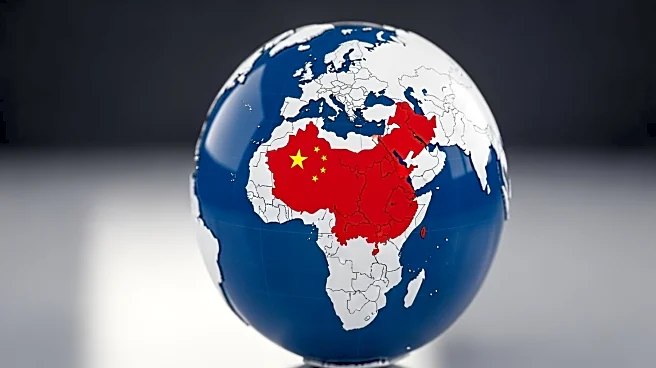What's Happening?
The European Council on Foreign Relations (ECFR) has released a policy brief detailing a shift in the European Union's stance towards China. This change has been catalyzed by the COVID-19 pandemic, which has led to a convergence among EU member states
regarding the challenges posed by China. Concerns have been raised about the lack of reciprocity in the Sino-European economic relationship, China's assertive international behavior, and its violations of international legal commitments, particularly in Hong Kong and Xinjiang. The ECFR suggests that this growing skepticism presents an opportunity for the EU to develop a more robust and coherent policy towards China. The German Council presidency is encouraged to use this momentum to establish institutional structures that enhance the EU's capacity to act, while addressing concerns about Franco-German dominance in shaping the China agenda.
Why It's Important?
The shift in the EU's stance towards China is significant as it could lead to a more unified and strategic approach in dealing with China's global influence. This development may impact international trade relations, as the EU seeks to address the imbalance in economic reciprocity with China. Additionally, the focus on human rights violations and legal commitments could influence diplomatic relations and international policy decisions. The EU's ability to act cohesively on this issue may strengthen its position in global affairs, potentially affecting U.S.-EU relations, especially in areas where U.S. and EU interests align regarding China's global conduct.
What's Next?
The ECFR suggests that the German Council presidency should leverage the current momentum to create institutional frameworks that improve the EU's capacity to address the challenges posed by China. This involves easing concerns about Franco-German dominance and ensuring that all EU member states are actively engaged in shaping the future approach to China. The development of these structures could lead to more coordinated actions and policies, potentially influencing future trade agreements, diplomatic strategies, and international collaborations.
Beyond the Headlines
The growing wariness of China within the EU may lead to deeper discussions on ethical and legal standards in international relations. The focus on human rights and legal commitments could prompt broader debates on the EU's role in promoting global standards and values. Additionally, this shift may influence cultural perceptions and public opinion within Europe regarding China, potentially affecting tourism, cultural exchanges, and bilateral initiatives.















